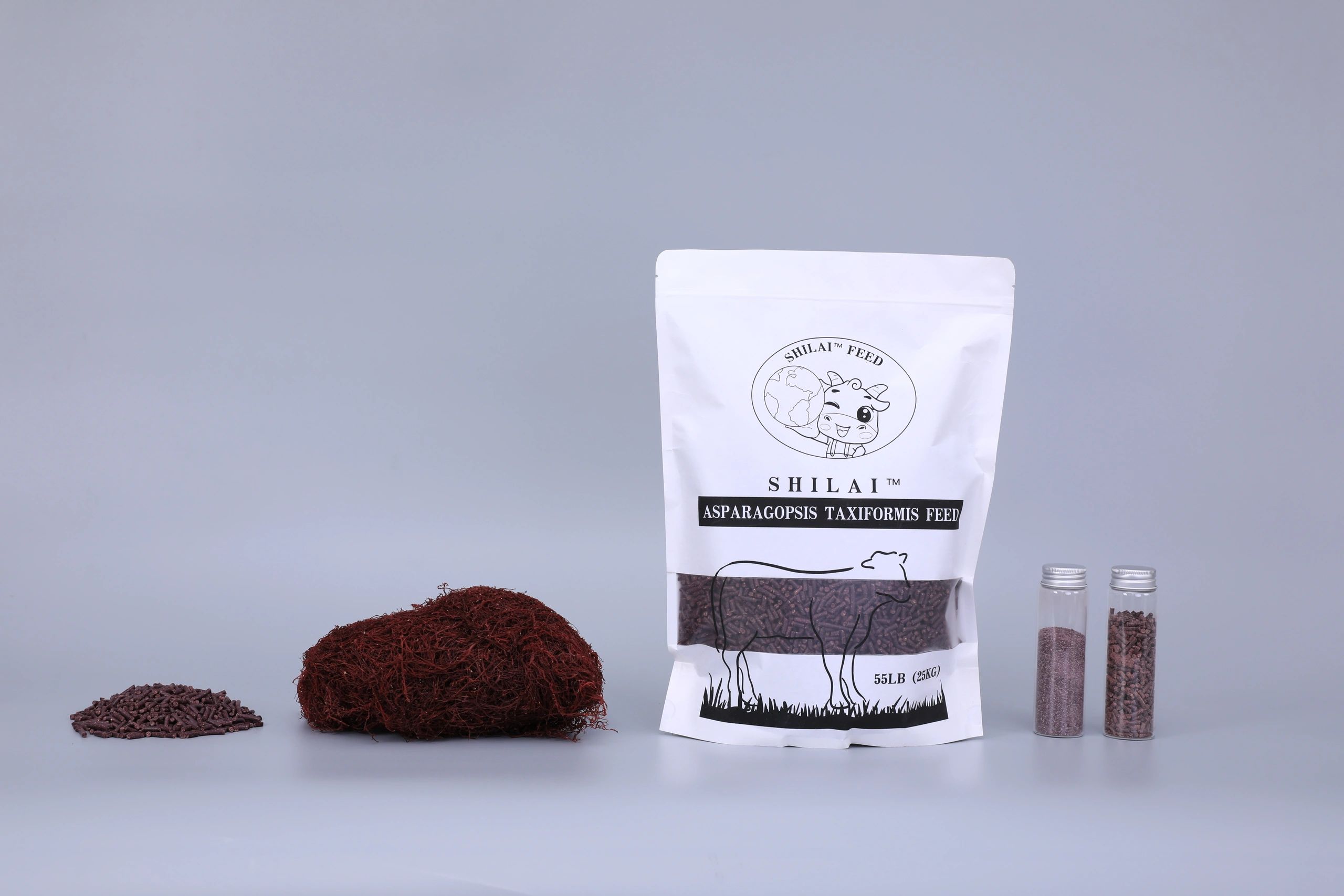Agriculture around the globe contributes heavily to greenhouse gas generation, predominantly via livestock operations.
With a higher global warming potential than CO2, methane represents a particularly damaging contributor to climate change.
Researchers are investigating Asparagopsis taxiformis, a red marine alga, as a potential breakthrough for reducing methane from ruminants.
The alga carries a bioactive agent that inhibits the rumen microbes responsible for methane, lowering emissions from animals.
Including Asparagopsis taxiformis in livestock formulations has produced promising early results that suggest a viable path to reduce farming-related greenhouse gas emissions.
- Beyond reducing methane, Asparagopsis taxiformis presents multiple ancillary benefits for livestock systems.
- Greater nutrient uptake and robustness
- Opportunities to develop sustainable aquaculture-driven industries
Ongoing research and development are warranted, yet Asparagopsis taxiformis already shows compelling potential to lower agricultural emissions.
Exploring the Commercial Promise of Asparagopsis taxiformis Powder as a Feed Ingredient
Asparagopsis taxiformis in powdered or extract format may provide a practical, scalable feed ingredient to benefit animals.
Its biochemical profile offers nutrients and functional compounds that may boost animal growth and efficiency.
Employing A. taxiformis powder in feed mixes has achieved methane declines in trials and may improve micronutrient profiles.
More targeted research will help define optimal formulations, stability during processing, and sustained impacts on animal welfare.
Asparagopsis taxiformis and the Future of Sustainable Animal Agriculture

Asparagopsis taxiformis is becoming notable as an option to confront the environmental issues driven by common animal agriculture practices.
Adoption of the algae in feed could enable measurable reductions in methane and a smaller ecological footprint for farms.
The literature points to additional gains in animal health and output that may accompany methane mitigation using Asparagopsis.
More work to verify long-term safety and logistical viability is necessary, though early findings look promising.
Asparagopsis as a Dietary Strategy to Lower Methane
Asparagopsis shows up as a viable intervention to significantly reduce methane produced in ruminant digestion.
Compounds in Asparagopsis act on rumen microorganisms to suppress methanogenesis and lower methane output.
- Research evidence points to pronounced methane reductions in trials where Asparagopsis was used in feeds.
- The use of Asparagopsis as a feed additive is considered an environmentally sustainable approach to methane mitigation.
- Ranchers and livestock operators are showing heightened interest in testing Asparagopsis in diets.
Asparagopsis: The Marine Ingredient Shaping Sustainable Livestock Systems
An oceanic innovation is emerging as Asparagopsis taxiformis demonstrates potential to materially reduce methane from cattle and sheep.
- Feeding trials with Asparagopsis demonstrated substantial methane declines, supporting its environmental promise.
- This seaweed breakthrough may foster a new balance between productive farming and reduced ecological impact.

As climate policy and industry responses develop, Asparagopsis offers a promising option to reduce livestock methane emissions.
Optimizing Methane-Cut Feed with Asparagopsis taxiformis
Work is underway to determine optimal processing methods and inclusion rates to enhance A. taxiformis effectiveness.
The Science Behind Asparagopsis taxiformis's Methane-Lowering Effects
The scientific explanation centers on the seaweed’s bioactives inhibiting methanogenic archaea and thereby lowering methane output.
The presence of bromoform is a likely mechanism for methane suppression, prompting ongoing study into dosage, residues, and safety.
Blending Asparagopsis into Diets for More Sustainable Farming
The combination of nutritive content and functional compounds makes Asparagopsis suitable for practical feed inclusion.
Asparagopsis integration may improve nutrient density, digestive efficiency, and deliver ancillary antimicrobial or immunomodulatory effects.
A Sustainable Future Built on Asparagopsis taxiformis
This red alga provides a promising, nature-inspired approach to lower the environmental cost of animal-based food production.
- Furthermore, Asparagopsis taxiformis is nutrient rich and can add valuable components to animal feeds.
- Research teams and industry players are assessing the species for multiple applications within food production chains.
Embedding the seaweed in feed strategies could help diminish the overall environmental impact of farming operations.
Animal Health and Productivity Gains from Asparagopsis Feed Inclusion
Asparagopsis is being noted for its ability to reduce methane while also supporting animal health and production metrics.
Use in diets has been associated with improved nutrient absorption and feed conversion, which can support weight gain and overall condition.
Functional benefits like antioxidant and immune-support properties may accompany Asparagopsis use, reinforcing animal health.
The momentum behind sustainable livestock practices enhances the appeal of Asparagopsis as studies and commercialization advance.
A Sustainable Trajectory: Methane-Cut Feeds Based on Asparagopsis
With pressure rising to decarbonize food production, Asparagopsis provides a credible option to lower the sector’s greenhouse gases.
- Experts propose that active compounds in the algae block key microbial pathways that produce methane in the rumen.
- Controlled experiments have shown that feeding Asparagopsis can yield notable declines in methane production.
Asparagopsis-based feeds may enable a transition to more climate-friendly and resilient agricultural practices.